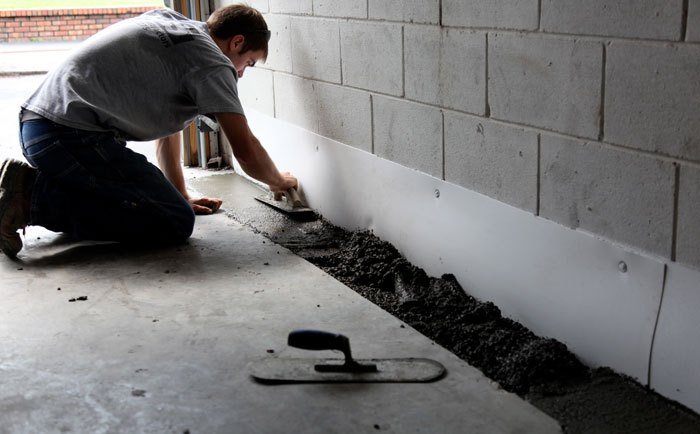If you have a basement in your home, you should ensure it is waterproofed properly. A basement that leaks water can cause a lot of damage to your home and can be very costly to fix. Here are the three best basement waterproofing methods.
1. Interior Sealants
Interior sealers help prevent excessive ambient humidity from soaking into your porous brickwork. Interior sealants also keep the basement’s ambient humidity level low and stop water vapor from traveling through the masonry.
When applying an interior sealant, make sure that you cover all the basement’s walls, including the floor and ceiling. Get into all the nooks and crannies, as well as around pipes and wiring. You should also apply a sealant to the basement door frame and threshold.
It is important to note that interior sealants are not waterproofing solutions—they simply help prevent moisture from entering the basement. If your basement is already leaking water, then an interior sealant will not be effective in stopping the leaks.
2. Interior Drainage
A drainage system is a great way to waterproof your basement and keep it dry. Interior drainage systems work by collecting water that leaks into the basement and then pumping it out of the basement and away from the home.
There are various interior drainage systems, so be sure to choose one that is right for your home. One popular type of drainage system is called a French drain. A French drain is a trench filled with gravel that is installed on the basement floor. The gravel collects the water that leaks through the basement floor and then pumps it out of the basement using a sump pump.
Another popular interior drainage system is known as a weeping tile system. Weeping tiles are installed along the perimeter of the basement foundation, and they collect water that leaks in through the basement walls. The water is then pumped out of the basement using a sump pump.
If you are interested in installing an interior drainage system in your basement, consult a professional waterproofing contractor like ‘58 Foundations.
3. Exterior Basement Waterproofing
Waterproofing your basement’s exterior is intended to keep water from causing serious structural damage to the property by coating the outer basement walls with polymers and membranes.
Polymer-based materials are designed to endure the structure’s life and are unaffected by soil pH. Polymer-based waterproofing products may be sprayed directly onto a wall, cure quickly, and are semi-flexible, allowing for some substrate movement.
What’s more, once the basement has been waterproofed using a polymer-based material, it is coated with a membrane. The membrane will keep water from seeping through the basement walls and into the home.
There are many types of exterior basement waterproofing products on the market, so be sure to consult with a professional before choosing one.
Overall, waterproofing your basement is a critical step in protecting your home from water damage. Choose the best method for your home, and be sure to consult with a professional before starting any of these projects.

